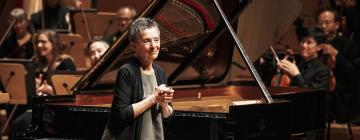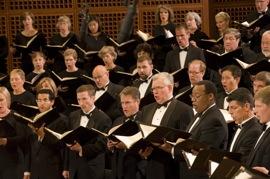San Francisco Symphony, under Music Director Michael Tilson Thomas, closed out its regular season with a run of performances of Beethoven’s Missa Solemnis. At the first performance of the series, Thomas had not yet succeeded in conquering this thorny work’s many challenges, and the concert was further hampered by the surprising variability of the soloists. Overall, the performance suffered from a general lack of cohesiveness and an inability on the conductor’s part to adequately clarify the structure of the Missa and its individual movements.
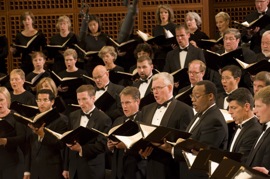
The Missa Solemnis is possibly the least-performed of the composer’s major late works, and it’s easy to understand why. The chorus parts are exceptionally difficult, vocally and musically, and few organizations have the time and resources to commit to rehearsing and performing the piece. At 80 minutes, it is more than twice the length of a typical Classical-period Mass and far more demanding than any of Haydn or Mozart’s Masses. The chorus, which sings for nearly all of that 80 minutes, must have exceptional stamina and focus. The choral writing is awkward, more instrumental than vocal, with the chorus often required to sing at the extremes of both register and volume. Moreover, the musical rhetoric shifts frequently, from the declamatory to the lyrical to the contrapuntal. There’s nothing straightforward at all about the Missa.
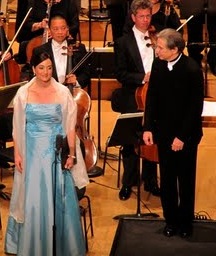
The Symphony Chorus, that mighty instrument, mostly rose to the requirements. The opening Kyrie did not go well for any of the participants, showing some rhythmic uncertainty and intermittently poor coordination between the orchestra and chorus. The chorus, though singing with good tone, sounded tentative at times, understandable in light of what lay ahead. Moreover, tenor Gregory Kunde, who was in patchy vocal form throughout the evening, had significant pitch problems in his entrances, which include the very first vocal solo of the Missa.
The chorus roared back in the Gloria, despite having to fight against an orchestra/organ combination that was frequently too loud, and handled the increasing speed and difficulty of the movement with aplomb. The final choral outbursts were especially memorable, sung with the kind of energy that make me want to bring back clapping between movements. If anything deserves immediate applause, the electrifying end of the Gloria, when well-performed, does.
The solo quartet, consisting of soprano Christine Brewer, mezzo Katarina Karnéus, Kunde, and bass Ain Anger, had some fine moments in the Gloria, particularly in the passage “Gratias agimus tibi.” By the end of this movement, however, it was sadly clear that Brewer, an outstanding vocalist in her previous local appearances, was having some difficulties, and they persisted throughout the performance. Her voice had no bloom at the top, turning thin and buzzy, and showed less richness in the middle and lower range than previously.
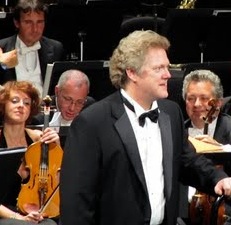
Karnéus and Anger were by far the standouts among the soloists, Karnéus singing gorgeously throughout and Anger making a noble impression during the long bass solo in the Agnus Dei. In the latter, the men of the chorus were also outstanding.
And so the evening went, with individual beauties interspersed with puzzlement. The best moments were often the quietest, when the chorus could come to the fore without any sense that it had to fight the orchestra’s volume. In the Credo, for example, “Ante omnia secula,” “Qui propter nos homines, ” and “Et incarnatas est” were all lovely, while other sections lacked magic, such as “Et iterum …” through to “Cujus regni non erit finis.” The difficult fugues in the Credo went reasonably well, the “Osannas” of the Sanctus even better.
Concertmaster Alexander Barantschik played the obbligato violin solo in the Benedictus magnificently, weaving his way with beautiful phrasing and great poise around the chorus and soloists. The closing “Dona nobis pacem,” as much a demand as a prayer for peace, flowed gracefully. The orchestra stood out in its two brief and dramatic battle scenes. Still, this first Missa performance came across as a series of disjointed moments rather than as coherent whole, to the point that I’d call it the most incoherent work I’ve ever heard from MTT. I hope that the subsequent performances improve on the first, and, even more, that SFS will revisit the Missa Solemnis in a couple of seasons.
